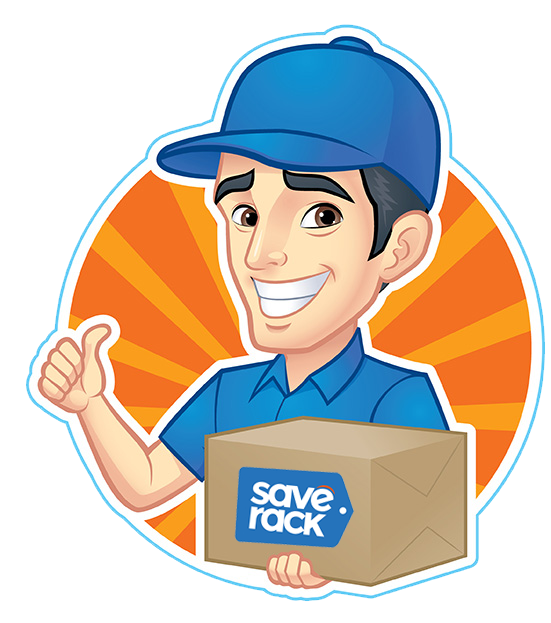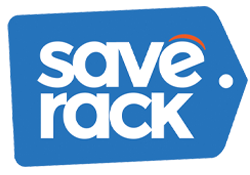What is E-Commerce?
E-commerce, or electronic commerce, refers to the buying and selling of goods and services over the internet. E-commerce has become increasingly popular in recent years, as more and more people and businesses have turned to the internet for buying and selling.
E-commerce allows people to shop online and have their purchases delivered to them, or to buy and sell products and services online without having to meet in person. It is a convenient and efficient way to conduct business and has revolutionized the way many people shop and do business.
Need help with your e-commerce store?
Save Rack can quickly and easily set up a professional-looking online store optimized for selling your products online. You can add products, manage inventory, process orders, and accept payments, all from a single, easy-to-use platform. Whether you’re just starting out with e-commerce or you’re an experienced online seller, Save Rack has everything you need to build a successful online store.

4 Types of E-Commerce Models
Four main types of e-commerce models can describe almost every transaction that takes place between consumers and businesses.
Business to Consumer (B2C)
Business-to-consumer (B2C) e-commerce refers to the online sale of products or services to individual consumers rather than other businesses. This contrasts with business-to-business (B2B) e-commerce, which involves selling products or services to other businesses. B2C e-commerce has become increasingly popular as more consumers turn to the internet to shop for products and services. This type of e-commerce allows businesses to reach a larger, global audience and offer their products or services to consumers at any time of the day or night.
Business to Business (B2B)
Business-to-business (B2B) e-commerce is the online sale of products or services between businesses. This contrasts with business-to-consumer (B2C) e-commerce, which involves selling products or services to individual consumers. B2B e-commerce is often more prominent in scale and more complex than B2C e-commerce, as it involves selling products or services to other businesses that may use them as raw materials, components, or finished goods in their operations. B2B e-commerce allows businesses to streamline their purchasing processes and to easily find and compare products and services from a wide range of suppliers.
Consumer to Consumer (C2C)
Consumer-to-consumer (C2C) e-commerce refers to the online sale of products or services by individual consumers to other consumers. This is in contrast to business-to-consumer (B2C) e-commerce, which involves the sale of products or services by businesses to individual consumers, and to business-to-business (B2B) e-commerce, which involves the sale of products or services between businesses. C2C e-commerce platforms, such as online marketplaces, allow consumers to buy and sell products or services with each other quickly. These platforms often provide tools and services to facilitate transactions, such as payment processing and customer support. C2C e-commerce has become increasingly popular in recent years, allowing consumers to find and purchase unique or hard-to-find items easily and sell their products or services.
Consumer to Business (C2B)
Consumer-to-business (C2B) e-commerce refers to the online sale of products or services by individual consumers to businesses. This is in contrast to business-to-consumer (B2C) e-commerce, which involves the sale of products or services by businesses to individual consumers, and to business-to-business (B2B) e-commerce, which involves the sale of products or services between businesses. C2B e-commerce is relatively rare, as it typically involves selling unique or one-of-a-kind products or services by individual consumers to businesses willing to pay for them. For example, a professional photographer might use a C2B e-commerce platform to sell their photographs to businesses that need high-quality images for their marketing materials. C2B e-commerce can be an attractive option for consumers with unique skills or talents, as it allows them to monetize their abilities and reach a wider audience.
The importance of having an online store!
Having an online store is essential for businesses for several reasons. First, it allows companies to reach a wider audience, as consumers can shop anywhere with an internet connection. This can be especially important for small businesses, which may have a limited customer base in their local area.
Second, an online store allows businesses to operate 24/7, so customers can shop at their convenience, even outside regular business hours.
Third, an online store can be an efficient and cost-effective way to sell products or services. It eliminates the need for physical storefronts and allows businesses to automate many aspects of the sales process. Overall, an online store can be a valuable tool for companies to increase sales, reach new customers, and improve their operations.

What is Save Rack?
Save Rack is a fulfillment service company that can handle the storage, packing, and shipping of your e-commerce store’s products. This means that you can focus on other aspects of your business, such as marketing and customer service, while Save Rack takes care of fulfilling customer orders.
When a customer places an order on your online store, Save Rack will pick up the product from its warehouse, pack it according to your specifications, and ship it to the customer’s address. Save Rack can also handle returns and exchanges and provide you with tracking information and real-time updates on the status of your orders.
By using Save Rack’s fulfillment services, you can improve the efficiency and reliability of your e-commerce operations and provide a better experience for your customers.


